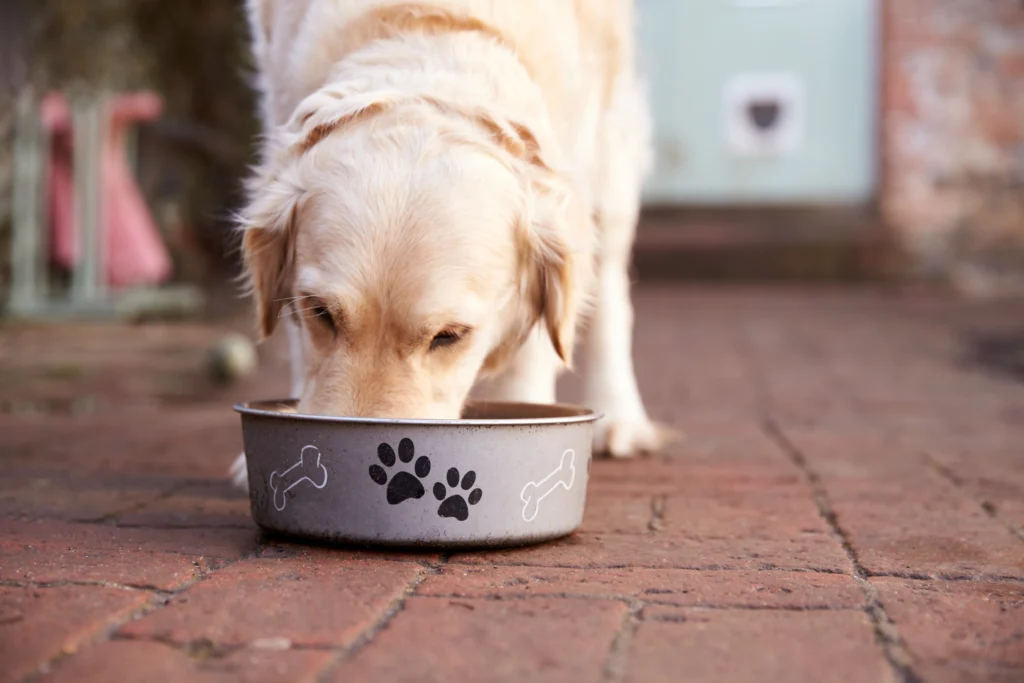As our beloved canine companions enter their golden years, their nutritional needs undergo significant changes. For small breed senior dogs, selecting the right food is crucial to maintaining their overall well-being and prolonging their quality of life. In this comprehensive guide, I will delve into the importance of choosing the perfect small breed senior dog food, exploring various factors that contribute to their optimal health and happiness.
READ ALSO : The Ultimate Guide to Choosing the Best Dog Food for Bernedoodles
The importance of choosing the right food for senior dogs
Proper nutrition plays a pivotal role in supporting the unique needs of aging dogs. As our furry friends grow older, their metabolism slows down, and their energy requirements decrease. Simultaneously, they may face age-related challenges such as joint issues, digestive sensitivities, and a weakened immune system. Providing them with a tailored diet rich in essential nutrients can help mitigate these concerns and promote their overall well-being.
Understanding the nutritional needs of small breed senior dogs
Small breed senior dogs have distinct nutritional requirements compared to their larger counterparts. Due to their size and higher metabolic rate, they tend to burn calories more quickly and may require a diet higher in protein and calories to maintain their ideal body weight. Additionally, their smaller mouths and teeth may necessitate a specific kibble size or texture to facilitate comfortable chewing and digestion.
Common health issues in small breed senior dogs
As small breed dogs age, they are susceptible to various health concerns, including:
- Dental Problems: Small breeds are prone to dental issues due to their compact jaw structure. A diet designed to promote dental health can help minimize plaque buildup and maintain healthy teeth and gums.
- Obesity: With a slower metabolism and reduced activity levels, small breed senior dogs are at risk of becoming overweight or obese. Choosing a diet formulated with appropriate calorie density can help prevent excessive weight gain.
- Joint and Mobility Issues: Smaller breeds may experience joint problems and reduced mobility as they age. A diet rich in glucosamine, chondroitin, and omega-3 fatty acids can support joint health and reduce inflammation.
- Kidney and Urinary Tract Health: Senior dogs may develop kidney or urinary tract issues, necessitating a diet with controlled levels of protein, phosphorus, and sodium to reduce strain on these organs.
Key considerations when selecting small breed senior dog food

When selecting the best small breed senior dog food, several factors must be taken into account:
- Age and Breed Size: Look for formulas specifically designed for senior dogs and tailored to the size and breed of your furry companion.
- Calorie Density: Senior dogs often require fewer calories due to their reduced activity levels. Choose a food with appropriate calorie density to maintain a healthy weight.
- Protein Source and Quality: High-quality protein sources, such as lean meats, eggs, and fish, are essential for maintaining muscle mass and supporting overall health.
- Fiber Content: Adequate fiber levels can aid in digestion and promote regular bowel movements, which are crucial for senior dogs.
- Specialized Nutrients: Look for formulas enriched with glucosamine, chondroitin, and omega-3 fatty acids to support joint health, cognitive function, and a healthy coat and skin.
Reading and understanding dog food labels
Navigating the world of dog food labels can be daunting, but understanding the information provided is crucial. Pay attention to the following:
- Ingredient List: The ingredients are listed in descending order by weight. Look for high-quality, recognizable ingredients at the top of the list.
- Guaranteed Analysis: This section provides the minimum or maximum percentages of crude protein, crude fat, crude fiber, and moisture content.
- Nutritional Adequacy Statement: This statement ensures that the food meets the nutrient requirements established by regulatory bodies, such as the Association of American Feed Control Officials (AAFCO).
- Feeding Guidelines: These guidelines provide recommended portion sizes based on your dog’s weight and activity level, but remember to adjust as needed based on your dog’s individual needs.
Essential ingredients in small breed senior dog food
When selecting a small breed senior dog food, look for formulas that include the following essential ingredients:
- High-Quality Protein Sources: Lean meats, such as chicken, turkey, or fish, provide essential amino acids for muscle maintenance and overall health.
- Whole Grains and Fiber: Ingredients like brown rice, oats, and barley provide complex carbohydrates and fiber for digestive health and sustained energy.
- Omega-3 and Omega-6 Fatty Acids: Found in sources like fish oil, flaxseed, and canola oil, these fatty acids promote healthy skin and coat, as well as cognitive function.
- Antioxidants: Vitamins C and E, as well as antioxidants from fruits and vegetables, help support the immune system and combat age-related cellular damage.
- Glucosamine and Chondroitin: These compounds can help maintain joint health and mobility, alleviating discomfort associated with arthritis and age-related joint issues.
Avoiding common allergens in small breed senior dog food

Many small breed senior dogs may develop food sensitivities or allergies as they age. Common allergens to avoid or limit in their diet include:
- Wheat and gluten
- Corn and soy
- Dairy products
- Artificial preservatives and colors
Look for grain-free or limited-ingredient formulas to minimize the risk of adverse reactions and promote digestive health.
Tips for transitioning your small breed senior dog to a new food
Introducing a new food to your small breed senior dog should be done gradually to avoid digestive upset. Follow these tips for a smooth transition:
- Start Slowly: Begin by mixing a small amount of the new food with their current diet, gradually increasing the ratio over a period of 7-10 days.
- Monitor Reactions: Closely observe your dog’s appetite, stool quality, and overall well-being during the transition period. If any adverse reactions occur, slow down the process or consult with your veterinarian.
- Hydration: Ensure your dog has access to fresh water at all times, as dietary changes may affect their water intake and digestion.
- Consistency: Once the transition is complete, stick to the new food for several weeks before considering any further changes to allow your dog’s digestive system to adjust fully.
Reviews of the top small breed senior dog food brands
After extensive research and evaluation, here are some of the top small breed senior dog food brands that prioritize the unique needs of aging, smaller canines:
- Wellness Core Small Breed Senior Dog Food: This grain-free formula is packed with high-quality protein sources, antioxidants, and glucosamine and chondroitin for joint support. It also includes probiotics and prebiotics for digestive health.
- Blue Buffalo Life Protection Formula Small Breed Senior Dog Food: This recipe features LifeSource Bits, a precise blend of antioxidants, vitamins, and minerals tailored for senior dogs. It also contains glucosamine and chondroitin for joint support.
- Purina Pro Plan Bright Mind Adult 7+ Small Breed Dog Food: Designed for cognitive health, this formula includes enhanced botanical oils and a proprietary blend of nutrients to support brain function in senior dogs.
- Hill’s Science Diet Small Paws Senior Dog Food: This formula is enriched with high-quality protein, fiber, and essential nutrients tailored for the unique needs of small breed senior dogs. It also includes glucosamine and chondroitin for joint support.
- Merrick Lil’ Plates Small Breed Senior Dog Food: This grain-free, high-protein formula features real deboned meat as the first ingredient, along with glucosamine and chondroitin for joint health, and omega-3 and omega-6 fatty acids for skin and coat support.
Remember, every dog is unique, and their dietary requirements may vary. Consulting with your veterinarian is always recommended to ensure you choose the most suitable option for your furry companion’s specific needs.
Conclusion: Providing the best nutrition for your small breed senior dog
As our beloved small breed senior dogs age, providing them with the best nutrition is essential for maintaining their overall well-being and prolonging their quality of life. By understanding their unique nutritional needs, reading labels carefully, and selecting high-quality, tailored formulas, we can ensure our furry companions receive the nourishment they deserve during their golden years.If you’re looking to provide the best nutrition for your small breed senior dog, consider trying one of the top-rated brands mentioned in this article. Your furry companion’s health and happiness are our top priorities, and we’re here to help you make an informed decision. Visit our website or contact us today to learn more about our selection of premium small breed senior dog food options. Together, we can ensure your loyal companion enjoys a happy, healthy, and fulfilling life in their golden years.


